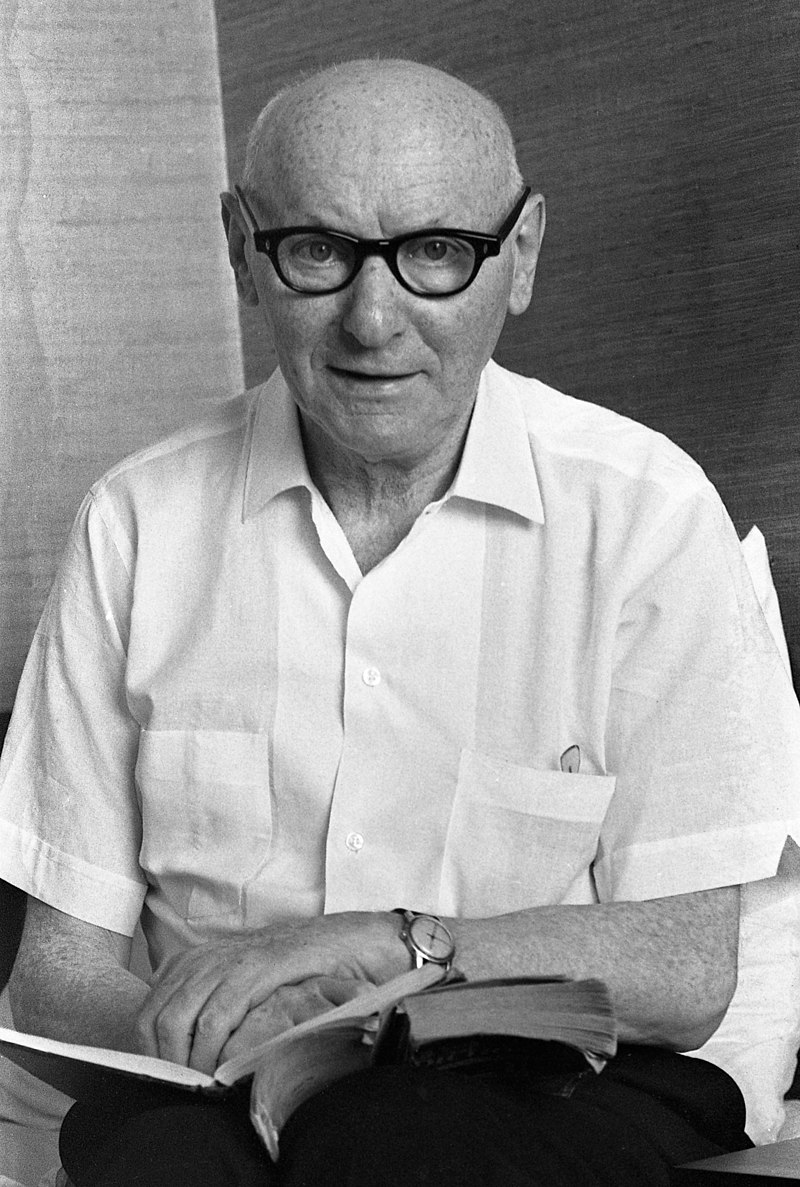He became world-famous only in the United States. However, Poland, in which he was born and raised persisted in his novels and in his heart. A Jewish Nobel laureate who “looked at Broadway but saw Marszałkowska Street”.
The exact date of the writer’s birth is not known. The first date mentions 21 November 1902. The second, which appears more frequently, is 14 July 1904. Why? Perhaps Singer made up the second date to avoid being drafted into the army during the Polish-Bolshevik War (the Poles were then defending themselves against the aggression of Bolshevik Russia). He himself gave a more prosaic reason. One day he asked his mother the date of his birthday. She replied: today. And it was then 14 July.
Wandering on Polish soil
Icek-Hersz Zynger was born and brought up in Poland occupied by the Russians. He grew up in a pious Jewish family. His father was a rabbi. The Singer family lived in various places in Poland, including Biłgoraj, Stary Dzików and Warsaw. It was the capital of Poland that became a real home for Isaac. He worked there as a proofreader and editor at the newspaper Literarisze Bleter. He also translated the works of Thomas Mann and Erich Maria Remarque into Yiddish.
Debut
On the pages of the magazine in which he worked, his first short story was published in 1925, titled “In Old Age” (“Na starość”), the plot of which takes place in Biłgoraj. However, the official date of Singer’s debut is postponed to 1935 when his novel “Satan in Goray” was published in its entirety (earlier in episodes). The book told the story of a Jew who claimed to be the Messiah. The tragic story of the Jews who died during a pogrom during the Cossack uprising led by Bohdan Khmelnytsky in the 17th century is set in the background.
Time to emigrate to the USA
The economic crisis of the 1930s reached Central Europe. Singer found himself becoming increasingly poor, and the German Nazi regime was being born just beyond Poland’s western border. Isaac therefore made the decision to leave. It involved separating from his partner and son, who eventually made their way to Palestine. The future Nobel laureate ended up in New York.
There he met his brother, who gave him help in finding work. Singer began working as a journalist. He translated and proofread for the newspaper “Forwerts – The Yiddish Forward”. There he printed a novel, ‘The Sinful Messiah’. Depressed, he put his feelings from this time onto paper in the story ‘Lost in America’, among others.
A flourishing career
1937 year brought a change in his life. He fell in love with the Jewish woman Alma Haimann-Wassermann. Three years later he married her. Alma worked in a shop and supported them both. This enabled Isaac to pursue writing and journalism. Securing a material existence apparently served Singer well, as more and more texts began to come out.
In the United States, he Americanised his literary pseudonym. Previously, he had signed his works as Yitzhok Bashevis (Yitzhok from his first name, and Bashevis was his mother’s name). In the USA, his name was already Isaac Bashevis Singer.
He was awarded the Nobel Prize in Literature for his work on 5 October 1978. His work dealt mainly with Jewish themes. He focused on the moral conflicts that tore apart the followers of Judaism who submitted to assimilation and those who stayed with tradition. The characters in his prose were deep and colourful.
It is interesting to note that Singer’s works are dominated by stories written before the Holocaust. Even as the action of the stories approached 1939, the German invasion of Poland and the start of the Second World War, the issue of the murder of Jews by the Germans is shown from a distance.
Poland in Singer’s works
He placed the action in his stories in the eastern territories of present-day Poland. In his novels he also depicted Warsaw, which he reflected with great topographical accuracy.
He was never fluent in Polish. He studied it mainly to learn the works of the Polish poets, including Adam Mickiewicz and Juliusz Słowacki.
His son, Israel Zamir, believed that his father emotionally never left Poland. “He looked at Broadway, but he saw Marszałkowska Street (one of Warsaw’s streets)”, said the great writer’s descendant. The Nobel laureate felt attached to Poland all the time and remained a Varsovian until his death. Once when Poles came to interview him, they showed him a map of pre-war Warsaw (the Polish capital had been destroyed by the Germans during the war). According to his son’s account, Singer snatched it from their hands and said, “This is mine, these are my streets”.
Isaac Bashevis Singer died on 24 July 1991 in Surfiside, Florida (USA). He was laid to rest in a Jewish cemetery in New Jersey. After leaving for the United States, he never visited Poland again.





